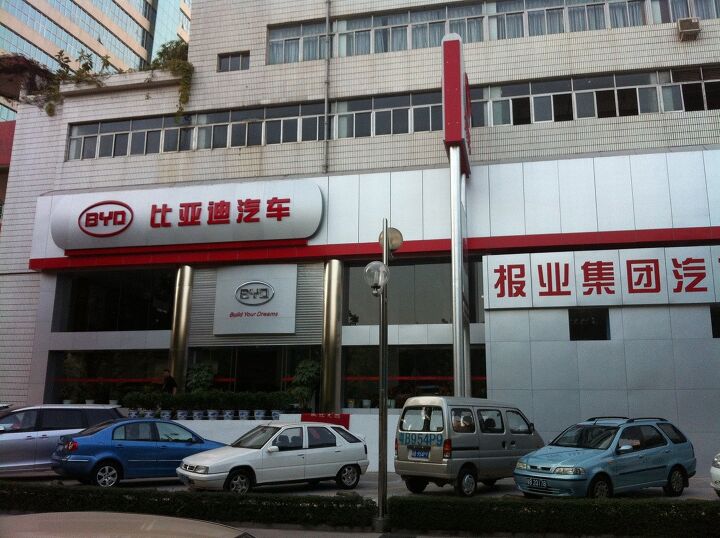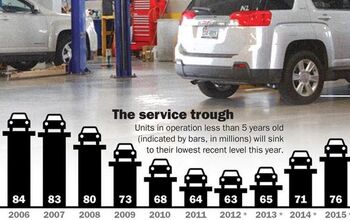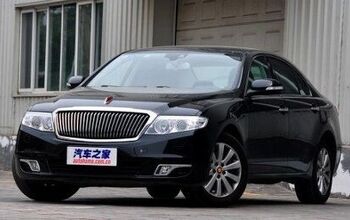Bump Your Dealers

And here another BYD first: BYD is the first Chinese company to perform a massive dealer cull. “BYD has admitted its sales network grew too fast and has cut the number of dealerships by 100,” reports People’s Daily.
BYD had created a 1,200 dealer network to keep up with the projected demand for 800,000 cars. By the end of last year, BYD had sold only 520,000 cars. BYD’s annual growth of 15.5 percent was less than half of the overall Chinese market.
For this year, BYD has set more conservative goals: They estimate an increase of 10 percent to about 550,000 cars. The company still wants to go ahead with its planned mainland A-share stock listing.

Bertel Schmitt comes back to journalism after taking a 35 year break in advertising and marketing. He ran and owned advertising agencies in Duesseldorf, Germany, and New York City. Volkswagen A.G. was Bertel's most important corporate account. Schmitt's advertising and marketing career touched many corners of the industry with a special focus on automotive products and services. Since 2004, he lives in Japan and China with his wife <a href="http://www.tomokoandbertel.com"> Tomoko </a>. Bertel Schmitt is a founding board member of the <a href="http://www.offshoresuperseries.com"> Offshore Super Series </a>, an American offshore powerboat racing organization. He is co-owner of the racing team Typhoon.
More by Bertel Schmitt


































Comments
Join the conversation
Can you explain why this company is not selling better and why they have not brought their wares to the US? With all the backing of Berkshire-Hathaway, it seems that they would have gotten through any red tape the US could create.
Not everything Warren Buffett touches turns to gold. Maybe BYD's product just isn't all that good.
What, no hearings on unfair culling? Where's the outrage from the Chinese congressmen trying to protect jobs in their districts?
Why, o why, when those places that have been through the initial car-ification of society before, almost all wish they were not tied down with all manners of red tape with regards to their dealer network, does upstart Chinese companies insist on following what seems to be the exact same model? What about building the darned cars, and let local versions of Wal-Mart, Amazon, 7 eleven or whatnot sell them, and the Geek Squad fix them? It's as if tying hairballs is some sort of universal obsession with those in the auto industry, with everyone from workers to dealers to local governments to banks to federal governments to activist groups all clinging together like desperate, drowning men, stomping on eachother to keep their own head above water. Over here, at least one can blame early naivete for getting stuck with needlessly rigid contracts, and lawyers, lobbyists and others in the profit-from-hairballs trade for ensuring the clusterbang continues, but why anyone would want to emulate it in a greenfield market, is beyond me.